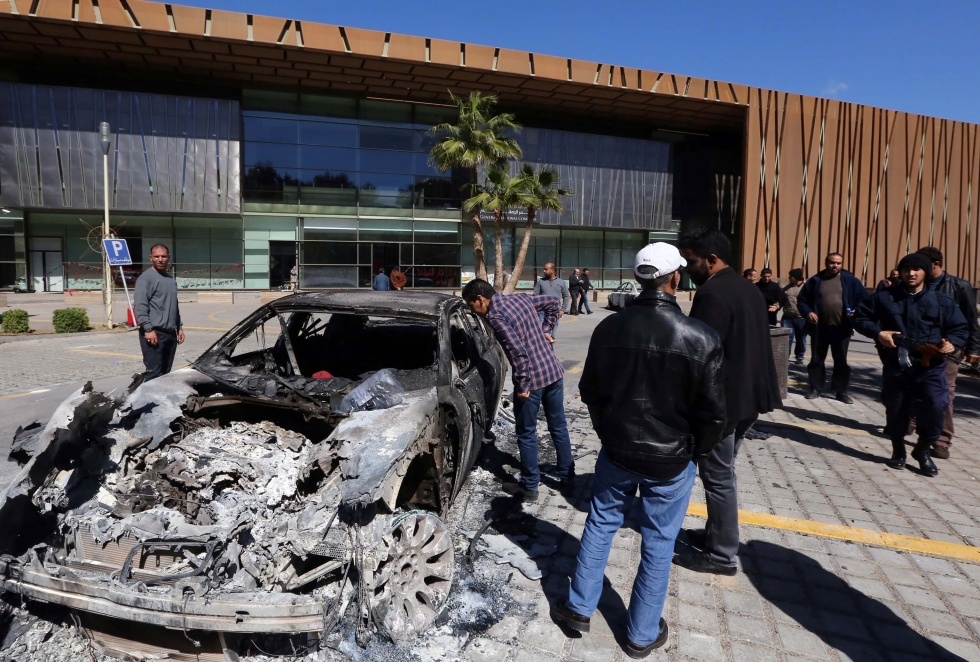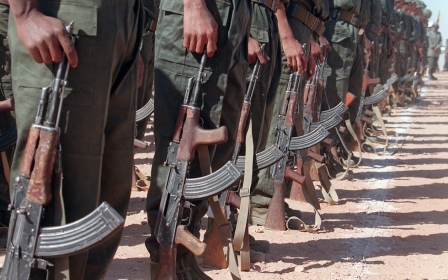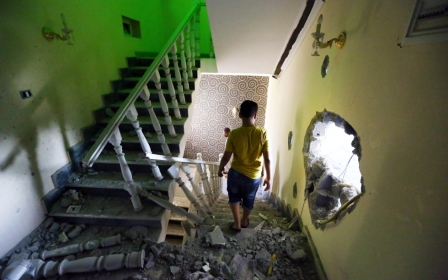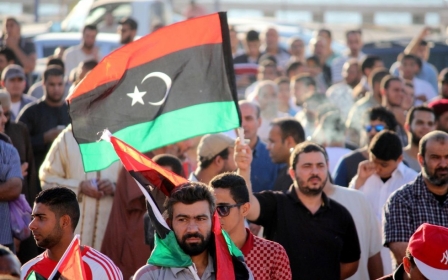Libya MPs call for foreign intervention to help civilians
Escalating violence in the country has prompted its new parliament to call for international help

Violence has become rampant in recent months across much of Libya (AFP)
Published date: 12 February 2015 20:00 GMT
|
Last update: 9 years 9 months ago
A majority of Libyan MPs voted on Wednesday to call for foreign intervention to protect civilians, amid chaos in the North African country as rival militias engage in fierce clashes, a deputy said. Parliament, meeting in Tobruk in the east, adopted "by 111 of the 124 deputies present a resolution calling on the international community to intervene quickly to protect civilians in Libya, including Tripoli and Benghazi", Abu Bakr Biira told AFP.
"The international community must intervene immediately to ensure that civilians are protected," he added, quoting from the resolution.
He did not elaborate on what the parliament expects from such foreign intervention.
The parliament, elected on 25 June, has been meeting in Tobruk between Benghazi and the border with Egypt, because of the violence plaguing both of Libya's main cities. However, the location has meant that not all MPs are attending the newly elected House of Representatives.
Since mid-July, the country has been rocked by deadly inter-militia fighting for control of key facilities including Tripoli's international airport.
Benghazi in the east, Libya's second city, has also seen battles between Islamists and the forces of a renegade general.
In July, Libya's foreign minister Mohamed Abdul-Aziz appealed to the UN Security Council asking for international assistance to help to protect the country's its oil fields and build functioning government institutions. However, he dismissed the prospect of boots on the ground, and seemed to suggest a stronger hu
“What we are calling for is a stabilisation and institution-building mission. Mainly experts who can train Libyans on the site in relation to building the military, building the police, building the intelligence establishment," he said. "At the same time, helping us with a security strategy that will protect our oil fields, because 98 percent of the income of Libya comes from the oil."
He asked that this assistance be under United Nations auspices, but said if the UN could not provide it, Libya would seek it through regional or bilateral arrangements.
Since the fall of long-time dictator Moamer Gaddafi in 2011, the interim authorities have failed to establish order and security in a country prone to anarchy and deadly violence.
They have been unable to restrain a large number of militias formed by ex-rebels who fought Gaddafi and who still hold sway across Libya.
On Tuesday, hooded gunmen shot dead Tripoli police chief Colonel Mohamed al-Suissi in the eastern suburbs and abducted two of his bodyguards before later freeing them.
New MEE newsletter: Jerusalem Dispatch
Sign up to get the latest insights and analysis on Israel-Palestine, alongside Turkey Unpacked and other MEE newsletters
Middle East Eye delivers independent and unrivalled coverage and analysis of the Middle East, North Africa and beyond. To learn more about republishing this content and the associated fees, please fill out this form. More about MEE can be found here.




